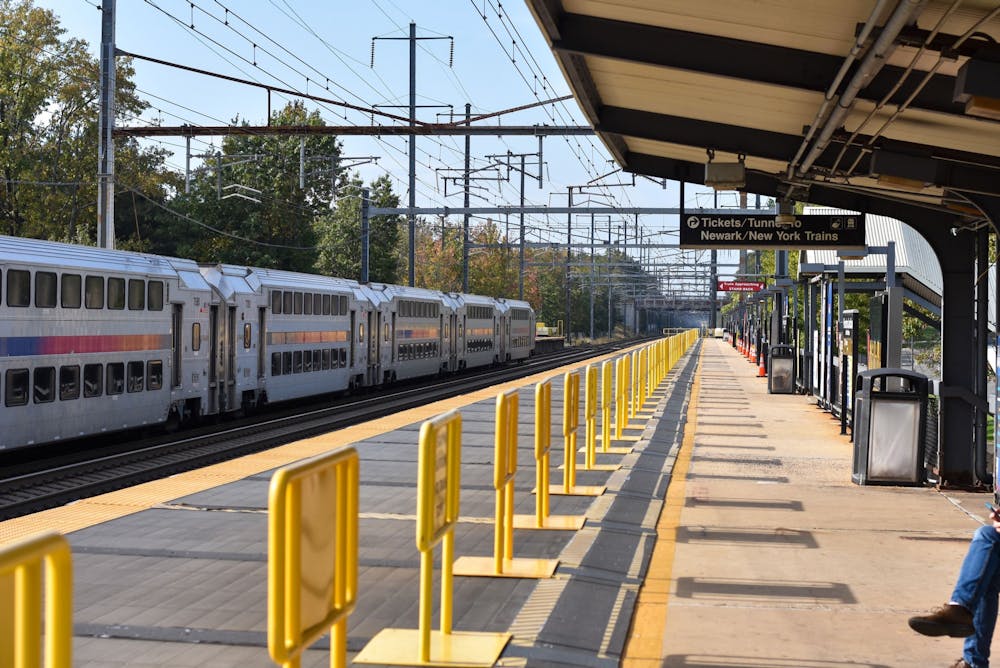Members of the union representing the nearly 500 engineers of New Jersey Transit (NJ Transit) voted unanimously today to authorize a strike, although any work stoppage is likely months away due to federal labor laws as contract negotiations continue.
With 90 trains shuttling passengers between campus and New York, Trenton, and Newark Airport every weekday, NJ Transit provides a critical link for Princeton students, faculty, and staff to the outside world.
The Brotherhood of Locomotive Engineers and Trainmen (BLET) and NJ Transit have been in negotiations since 2019. Workers have demanded pay rises of 18 to 23 percent to match the wages offered by other railroads and to compensate for inflation-related cost-of-living increases.
The negotiations have been monitored by the National Mediation Board (NMB), a measure established by the Railway Labor Act of 1926 to limit disruptions to service. The NMB mandates a 30-day cooling-off period if it determines negotiations have reached an impasse, which it has yet to do. Following this period, two 120-day Presidential Emergency Boards can be used to avert a strike, wherein the sitting U.S. president creates a special committee to investigate the dispute and provide recommendations from an outsider’s perspective. These potential delays mean that any disruption to service could be as far away as late May 2024.
Railways are subject to increased scrutiny in regards to labor disputes relative to other industries. The United States Congress has the ability to prevent rail strikes by forcing the outcomes of Presidential Emergency Boards to be adopted, which they did late last year to avoid a wide-reaching rail strike.
“NJT’s locomotive engineers have spoken loud and clear,” said Eddie Hall, the President of the BLET, said in a statement emailed to Bloomberg News. “We would prefer to reach a voluntary settlement, but make no mistake, with this vote the clock is now ticking. As soon as it is lawful for us to act, we will.”
NJ Transit was previously affected by an unauthorized strike in June 2022, where a widespread engineer “sick-out” led to the cancellation of all NJ Transit rail service.
“The strike made it extremely difficult to get home,” wrote Davina Thompson ’25 to the ‘Prince.’ At the time, she was stranded in New York City, and “The only way [to Princeton] if we did not want to pay hundreds of dollars on an Uber was one bus that was at capacity,” she said.

Thompson is a former staff Prospect writer for the ‘Prince.’
NJ Transit resumed service the next day following the strike due to a court injunction, which remains in effect and can be used to prevent strikes.
The University did not immediately return a request for comment.
The NJ Transit strike vote comes during a wave of renewed interest in and action by unions. Last week, 97 percent of the 145,000 workers affiliated with the United Auto Workers overwhelmingly voted to go on strike if negotiations with General Motors, Ford, and Stellantis fail. UPS employees affiliated with the Teamsters recently ratified a new contract that met many of its demands, averting a strike.

NJ Transit itself continues to face challenges in the wake of the COVID-19 pandemic. Ridership has yet to recover to pre-pandemic levels as the growth of at-home work means fewer commuters into the office. When federal COVID relief funds run out, NJ Transit faces a budget shortfall in the coming years of nearly $1 billion that the state legislature would have to resolve through a combination of additional state aid, fare hikes, or service cuts.
While no immediate disruptions to service are expected, the strike vote puts New Jersey’s largest transit agency on a time crunch to craft an agreement that satisfies all parties — with travelers across the Garden State left hanging in the balance.
Ryan Konarska is an associate Data editor and News contributor for the ‘Prince.’ He can be reached at ryankonarska[at]princeton.edu.








